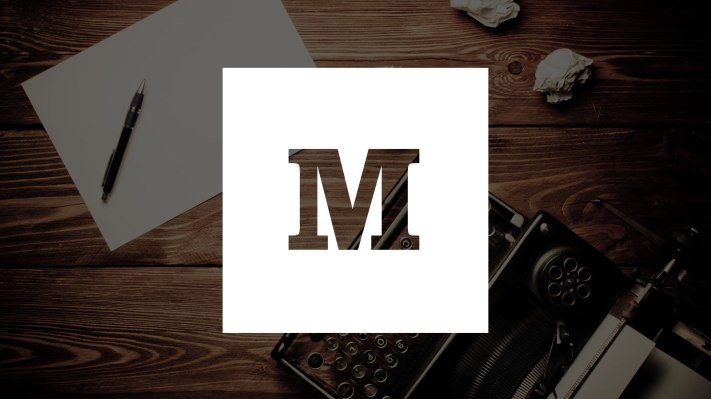It’s time to clean up the Internet, apparently. Blogging platform Medium this week joined Google and Microsoft, as well as other social platforms including Twitter, Facebook, and more recently Reddit, in taking a firmer stance on how it will handle online harassment, including the posting of confidential and personal information and revenge porn.
According to new rules posted on the Medium website, the company says it now reserves the right to suspend or block accounts and remove offensive content without notice and at its sole discretion.
Explains the company in a post about the updated policy:
“Every online social platform has to come to terms with the tension between fostering free expression (‘Say anything!’) and creating a place where everyone is free to be who they are (‘You are welcome here!’). Somewhere on this spectrum, sooner or later, you have to land. Where you land says a lot about what kind of online space you want to be.”
The new rules address a variety of online abuses, including threats of violence, hateful slurs, bullying, public shaming, blackmail and the posting of private or explicit images, taken or shared without the subject’s explicit consent. This latter item is known more commonly as “revenge porn,” and has been the target of a number of policy changes affecting larger platforms, including Google, Bing and Facebook, to name a few.
Just days ago, in fact, Bing introduced a new online form that will allow users to request the removal of revenge porn links from the Bing search engine’s index. The move followed a similar announcement from Google last month, which said it was making a web form available that people can use for their revenge porn takedown requests.
Though operating at a much smaller scale than something like Google or Facebook, Medium’s stance on the matter of harassment, trolling and revenge porn is relevant in the grand scheme of things, as more companies today are taking a harder line with how they’re dealing with disruptive and offensive content on their platforms.
While anonymous postings from those who hide behind a username can help fuel the popularity of online services (see for example, Yik Yak’s climb up the App Store charts as a sort of modern-age slambook for school kids and college students) not having to publicly stand behind your words can also lead people to say and do pretty terrible things.
Though there’s still a need to allow people the protections of anonymity for a variety of reasons, ranging from users’ simple right to privacy to protection from authoritarian regimes who crack down on dissidents’ social media postings, it’s becoming clear that there do need to be more established boundaries in place for many of the web’s most popular services.
The fallout that comes from hosting offensive content was also evident on Reddit this year, as its seedy underbelly featuring some of Internet’s most horrible and offensive posts finally came into conflict with the company’s desire to run a real business that caters to advertisers. The company claims that reason didn’t come into play when the site updated its content policies, but that seems disingenuous.
Like everyone else competing in the social space, Reddit came to understand that completely “unfettered free speech,” as new CEO Steve Huffman put it, ultimately harms a community and silences others. That can limit growth, and can serve to create a fickle community that will ultimately abandon your platform for the next one that allows them to troll unabated.
It should also be noted that, in many cases, the victims of online harassment and especially revenge porn, are women – a demographic that’s still woefully underrepresented behind-the-scenes, staffing the ranks of some of the tech industry’s largest companies, including those who have turned a blind eye to online harassment and revenge porn for years.
Perhaps Medium, which was founded by Twitter co-founder Ev Williams, doesn’t want to head down the same troubled path as others, including Twitter itself, have traveled over the years, when it comes to how bullying and harassment is handled on its platform.
Though in recent months, Twitter has begun addressing the problem with the release of tools for handling and reporting abuse, internally, the company admitted to failing its users with regard to how it handled the problem of trolls and their harassing messages. (A leaked memo from then-CEO Dick Costolo even stated that “we’ve sucked at it for years.”)
With its new content policy, Medium is setting the tone for the community it wants to foster on its site, while also adding that it won’t blindly react to incoming complaints. The company says that it wants to apply its new rules “thoughtfully,” which may mean asking for explanations about issues so it can understand the wider context.
The bigger problem ahead for Medium, and all companies today, is where to draw the line. As a blogging platform that ultimately wants to lend itself to passionate and even controversial op-eds, it will have to be careful about when and how it acts going forward.
